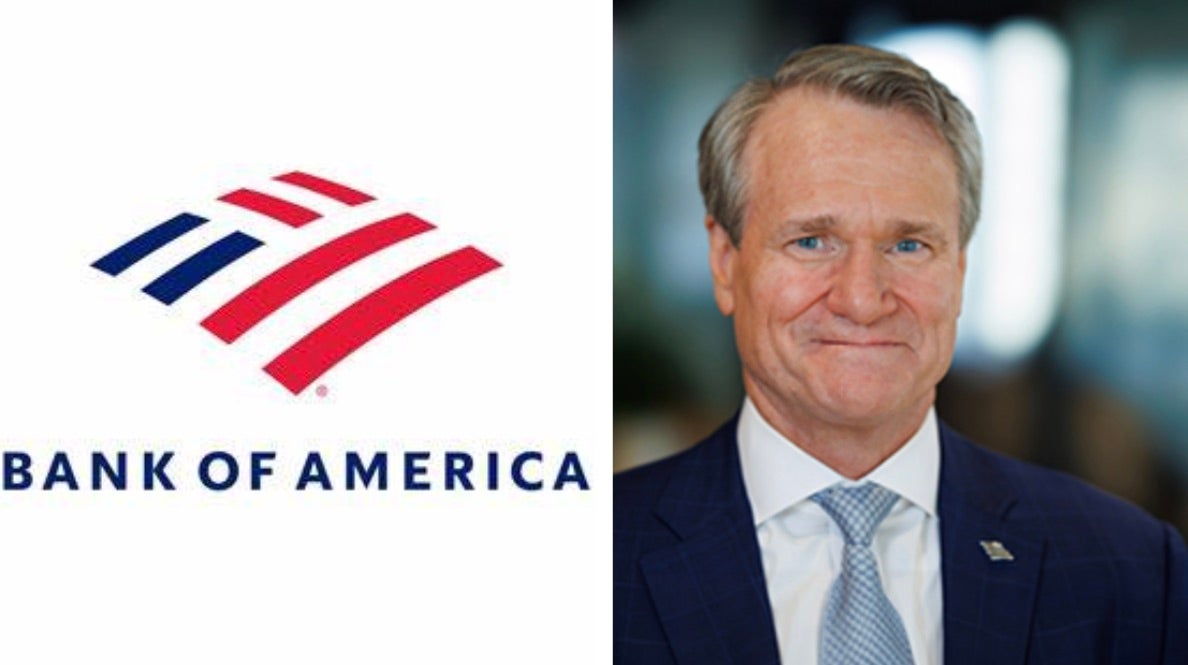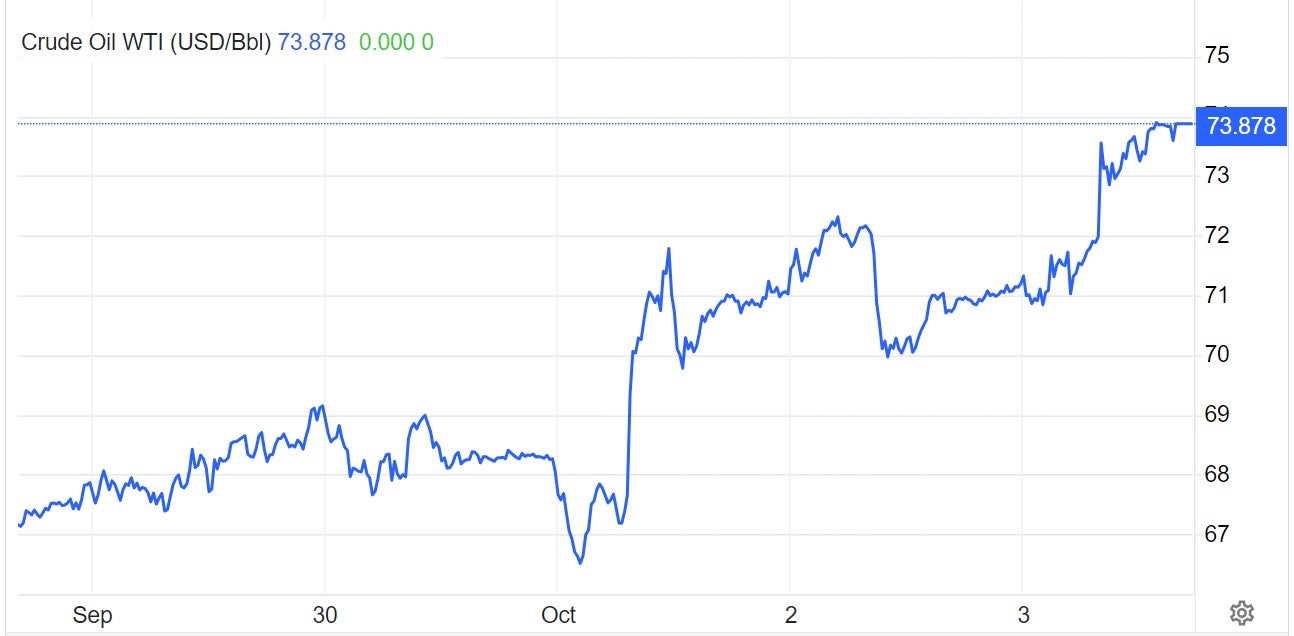5 Things To Know In Investing This Week: The Rising Price Of Commodities Edition

Bank of America (NYSE:BAC) has an outage with customers showing balances of zero. The customers are horrified. Want to know why the Bitcoin community finds this hilarious? The answer is hubris. Japan communicates it is dedicated to keeping ultra-low interest rates. The yen predictably declines again. Costco (NASDAQ:COST) made a fortune selling gold bars. Now they’re adding platinum. Do you own enough assets outside the financial system or do you want your assets at $BAC? War in the Middle East is accelerating with Iran attacking Israel, and Israel publicly considering taking Iranian oil production offline. Oil prices rose. In our continuing series on investor education, we talk about what to do when you’re losing money in a stock.
This week, we’ll address the following topics:
-
Bank of America CEO says if you own Bitcoin (CRYPTO: BTC), you could wake up to a zero balance one day. Then $BAC customers experience that at the bank.
-
The Bank of Japan is trapped and makes the worse of two bad choices again.
-
Costco selling platinum bars in addition to gold. People keep telling me the dollar is in great shape. I’m skeptical.
-
Global conflict is leading to higher oil prices. That could be a problem for a Federal Reserve that just cut rates.
-
If you’re down in a stock you like, when should you sell?
Isn’t this the part of the 5 Things where you compliment Andrew Brown and Alex Petrou again? Yes. They continue to do fantastic work and deserve public credit. Thanks for mentioning it kind reader.
Ready for a new week of making money on commodity inflation? Let’s dive in:
-
Bank of America Outages: Bitcoin’s Ironic Moment:
Wednesday wasn’t a great day for Bank of America $BAC customers. Systems went down, and many people opened their banking apps to a gut-wrenching sight — balances of $0 in their accounts. According to Downdetector, over 20,000 outages were reported, sparking panic just after 1 p.m. ET. BofA quickly responded, assuring everyone that the "issues are being addressed and have largely been resolved, and apologized for the inconvenience. So, if it's all under control, why are we harping on it?


Ever want to eat your words? It could be worse. You could be this guy.
DKI Takeaway: Interestingly, $BAC CEO, Moynihan, once warned that “Bitcoin is highly speculative, you could wake up one day and your account would be worth zero.” The irony is hard to miss. While traditional banking stumbled, Bitcoin holders who self-custody didn’t wake up to any unexpected surprises. The outage also makes a case for physical gold — your shiny bar doesn’t disappear into the digital ether. So, while BofA was scrambling to get their systems back online, perhaps it’s a reminder that diversifying into assets you can hold in your own hands outside the system — be it Bitcoin or gold — could offer some peace of mind. If you need assistance with self-custody of Bitcoin, reach out and we can help you.
-
Japan’s BoJ in a Rate Hike Trap as Yen Slides Again:
Japan’s Prime Minister, Shigeru Ishiba, has ruled out further interest rate hikes for now. This was announced following his first meeting with Bank of Japan Governor, Kazuo Ueda. Despite two immaterial hikes earlier this year, Ishiba stated that conditions aren’t right for the BoJ to move again, signaling that Japan is still trapped by its towering debt levels. Before this announcement, uncertainty over Japan’s next move strengthened the yen as investors held off on shorting the currency. The reason was a rate-hike announcement would have led to huge losses. Following the clear signal that no further hikes are coming, the yen has slid back to over 148 against the dollar as short sellers pile back into the trade. This reveals just how vulnerable Japan’s monetary policy has become.


These are huge moves up and down in a normally stable currency market.
DKI Takeaway: When global interest rates rose, Japan had been an outlier, keeping rates near zero to avoid a debt payment crisis. Raising rates to match global levels would push Japan’s borrowing costs sky-high, threatening to bankrupt the government and leading to inflation-causing yen printing to pay the interest. Most economists had been predicting another rate hike in December, but that expectation is now fading. For investors, Japan’s situation underscores the uncertainty of global monetary policy and raises questions about how long countries can maintain low rates amidst growing inflation concerns and currency debasement risks. Alternatively, when you have huge amounts of debt, reducing the value of the currency the debt is denominated in lowers your liability. Is this fiscal malpractice or currency debasement by design? When we’re done considering that question, we should be asking the same about the spending plans here in the US.
-
Costco Adds Platinum to Its Precious Metals Line up:
Costco $COST has expanded its foray into precious metals, adding platinum bars to its online catalogue after its gold bars flew off the shelves earlier this year. The membership-based retailer now offers 1-ounce platinum bars priced at $1,089.99, a slight markup from the current platinum spot price of $1,025. Much like its gold offerings, platinum bars are limited to one per membership. For those curious, Costco’s platinum choice is the PAMP Suisse Lady Fortuna, New in Assay—a upscale option for a store more known for bulk snacks than bullion.
Costco’s venture into gold began in August 2023, with the retailer reportedly selling $200 million worth of gold bars per month. Now, with platinum in the mix, it’s clear that demand for tangible assets is growing.


Source: ChatGPT
DKI Takeaway: The broader takeaway? Inflation expectations and fears of currency debasement are driving consumers to seek the safety of precious metals. As uncertainty in global markets continues, Costco’s foray into this space reflects the rising demand for assets that can potentially safeguard wealth against the eroding value of paper currencies. As DKI keeps phrasing it: Gold is holding its value while dollars lose purchasing power every year.
-
Global Tensions = Rising Inflation:
The Federal Reserve now faces a significant dilemma after completing its September rate cut. Tensions in the Middle East are rapidly escalating, with Iran launching hundreds of missiles at Israel. That’s led to higher oil prices which adds inflationary pressure that the Fed does not need immediately following the pivot to lower interest rates. The attack on Israel has heightened the situation, and an Israeli retaliation is possible. Israel is openly considering counter-attacking one of Iran’s oil facilities which would likely lead to a further rise in the price of oil.


Source: Trading Economics
DKI Takeaway: Since the Federal Reserve’s early rate cut, DKI has been concerned about potential inflation spikes, reminiscent of the 1970s trend of disinflation followed by a massive increase and rebounding inflation. Inflationary pressures are quickly rising, driven by the rising price of oil, a key force in the global economy. Leaders around the world engaging in debt-fueled stimulus spending will also contribute to future inflation. These rapidly escalating conditions could undermine the effectiveness of the Fed’s rate cut. At DKI, we know that global uncertainty and inflation will eventually be on the rise. Follow our positions list to learn more about how to hedge against global uncertainty.
-
Loses are Sometimes Okay:
Credit to Learn Wall Street again for the great analysis and image of how dangerous stock loses can become. The way the math works, is if your stock falls by 50%, you need it to rise by 100% to get back to breakeven. However, while it’s normal to focus on your original purchase price as special and meaningful, it’s not the best way to think about investing. You own the stock at whatever today’s price is. So, how should you think about dealing with losing positions?


Another great image from Learn Wall Street
DKI Takeaway: Many investors like to use stop losses so they can’t lose more than a set amount in any one position. That works for them, but at DKI, we focus on potentially high-return stocks where there’s some sort of misunderstanding about the investment opportunity. If the stock is down, but our investment thesis is still valid, we often buy more of the stock we like at lower prices and exercise patience. That’s effective as long as we don’t leverage our positions. It’s worked for us as DKI has had many positions that have risen 100% or more, and we think our latest picks have the same potential. If that’s interesting to you, you might consider a premium membership at DKI.
Information contained in this report, and in each of its reports, is believed by Deep Knowledge Investing (“DKI”) to be accurate and/or derived from sources which it believes to be reliable; however, such information is presented without warranty of any kind, whether express or implied. DKI makes no representation as to the completeness, timeliness, accuracy or soundness of the information and opinions contained therein or regarding any results that may be obtained from their use. The information and opinions contained in this report and in each of our reports and all other DKI Services shall not obligate DKI to provide updated or similar information in the future, except to the extent it is required by law to do so.
The information we provide in this and in each of our reports, is publicly available. This report and each of our reports are neither an offer nor a solicitation to buy or sell securities. All expressions of opinion in this and in each of our reports are precisely that. Our opinions are subject to change, which DKI may not convey. DKI, affiliates of DKI or its principal or others associated with DKI may have, taken or sold, or may in the future take or sell positions in securities of companies about which we write, without disclosing any such transactions.
None of the information we provide or the opinions we express, including those in this report, or in any of our reports, are advice of any kind, including, without limitation, advice that investment in a company’s securities is prudent or suitable for any investor. In making any investment decision, each investor should consult with and rely on his or its own investigation, due diligence and the recommendations of investment professionals whom the investor has engaged for that purpose.
In no event shall DKI be liable, based on this or any of its reports, or on any information or opinions DKI expresses or provides for any losses or damages of any kind or nature including, without limitation, costs, liabilities, trading losses, expenses (including, without limitation, attorneys’ fees), direct, indirect, punitive, incidental, special or consequential damages.




